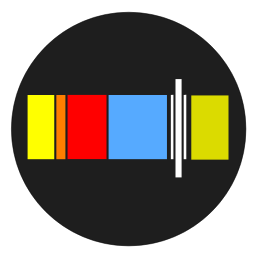Ep. 91: Finding the Unique Intersections of Your Story
- Rain Bennett

- May 5, 2021
- 4 min read
On this episode of The Storytelling Lab, Rain talks specifically about one of his course lesson topics (p.s. - if you haven't checked out the course yet, we will leave the link below!) Rain utilizes experiences from his life to detail exactly how you can start mapping where your unique intersections are. Tune in for all the storytelling tips and tricks!
SUBSCRIBE HERE:
A while back I received a message from a young lady aspiring to be a writer and speaker.
She’d been following me since we met briefly at a fitness park and told me she was inspired by my work.
“I would like to know your process on how you were able to become a public speaker and author,” she wrote.
My ego wanted to scream “What?! I’m still trying to become those things, so if you find out, I need you to tell me!”
Then I realized that for her, someone just beginning to think of pursuing this dream (much like myself years ago), I was an example of someone who made it actually happen. It wouldn’t be helpful to tell her that it’s still painfully challenging every day and I don’t consider myself to have achieved my mission.
But I did feel confident I could impart some wisdom on her, so I set up a call.
She came from the military and knew that she wanted to focus on empowering women by sharing her personal story — one of a woman of color from the south, that grew up in a highly religious community, and experienced assault in the workplace.
I had my breakthrough on defining my mission when I worked with a coach to find my “unique intersections.”
Unique intersections are where our interests and experiences come together to define what makes us uniquely “us,” and hopefully informs the direction of our paths forward.
This young lady had well defined unique intersections that would help her be laser-focused on who she should seek to impact. I was excited, because it took me at least 10 years to find mine.
But she had a problem.
She feared talking about her assault — not just because she knew there would be strong backlash in her industry, but more because she didn’t want to be defined by that one event.
She didn’t want to be known only for the fact that she had been assaulted because she had so much more to talk about. She didn’t want people to listen out of pity.
After making Raise Up, I didn’t want to be known as “the fitness guy” because I had so many other interests and things I could do well. Even though my struggles paled in comparison to someone that had experienced physical assault, my struggles were still identity-based and I could empathize with her.
But when I worked on finding my unique intersections, I tracked my experiences and why fitness was important to me. I realized I’d also done a lot of work in the healthcare industry — creating documentaries about cancer patients and rare diseases.
Then, I thought about my history and where I come from. My dad died of lung cancer and was an alcoholic. Diabetes and heart disease run rampant in my family. Much of my home county in North Carolina suffers from poor health. This was important to me.
So I leaned into it and self-proclaimed myself as a “health and wellness” filmmaker. I didn’t let other people define me — I took control of my narrative and defined it myself.
I told this young lady that I know it was hard for her to open up about that and I understood her fear of wanting to be labeled. But if I could give her any advice, it would be to “Be bold.”
Often the things that scare us the most are exactly what we need to do, but it’s so hard to trust ourselves and face that monster. It’s especially hard when those things have stigma attached to them or are pity-inducing. No one wants people to pity them.
But this was her story. There is no way around that. It will always be attached to her.
Instead, I told her, if she grabbed control of that and owned it, people would respect her. It would be tough, and maybe some people would even still pity her, but she could not control that. All she could control was the story she wanted to tell about herself. And if her focus was on the people she wanted to help — people like her — then it would help her find the strength to share.
Our experiences, even the tough ones, make us who we are. If we lean into that, learn as much about ourselves as possible, we can mold them with our interests into a beautiful story with unique intersections that no one else can replicate.
If you’re struggling with a similar issue, stand tall, be bold, and flip the script so that you use those unique intersections to propel you forward. Don’t let them hold you back.
In this week’s episode of The Storytelling Lab, I take you through the exact process of Finding Your Unique Intersection that has helped me and so many others.
Peace and Love,
Rain

If you enjoyed this episode, please subscribe to the show.
If you already subscribe and you receive value from the show, please let us know in a review.
And if you already subscribe and you’ve left a review, but you know someone else who could benefit from the show, please share it with them!
For more storytelling tips and tricks,
Visit my website rainbennett.com, or
Follow me on Twitter @rainbennett
Follow me on Instagram @rainbennett
Subscribe to my Youtube Channel
Follow me on Facebook @rainbennettfilms
And if you want to use your story to build a business, check out my course!









Comments